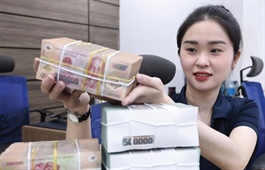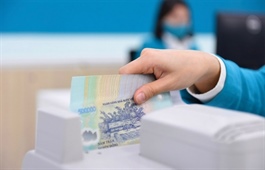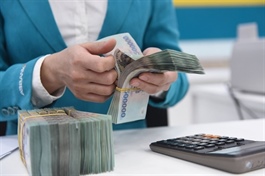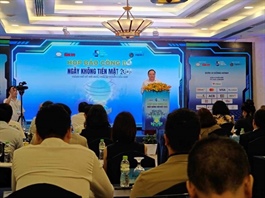Easing business households’ shift to e-invoices
Easing business households’ shift to e-invoices
Starting June 1, business households with large annual revenues have been required to transition from lump-sum tax payments to payments based on actual revenue.
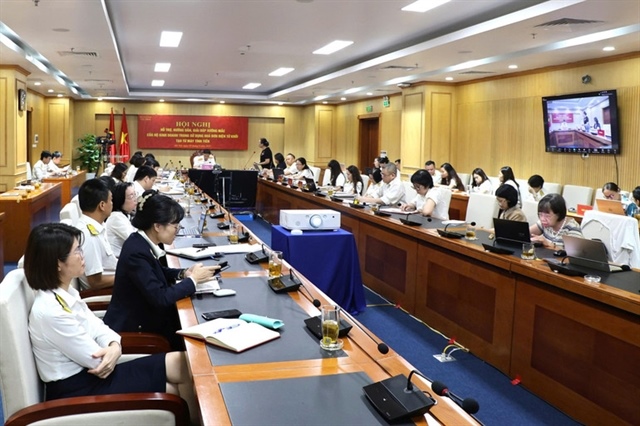
At the event delegates were told that tax authorities will improve policies and management to be more transparent, specific and appropriate, helping business households fulfil their tax obligations fully, quickly and conveniently. — Photo courtesy of the General Department of Taxation |
Tax authorities have pledged continued support to help business households overcome challenges in adopting e-invoices generated from cash registers, as the new system replaces the existing lump-sum tax model.
During a conference in Hà Nội on Thursday, the Deputy General Director of the Ministry of Finance's General Department of Taxation, Mai Sơn, said that implementing e-invoices from cash registers for business households is a crucial step in the roadmap to creating a modern, transparent tax system.
Sơn said that this initiative, as outlined in the Government's Decree No 70, supports both taxpayers and the sustainable development of the socio-economic sector. He added that it also marks a major and fundamental step along the way to phasing out lump-sum tax by 2026, transitioning to a self-declaration and self-payment system in line with the Politburo's Resolution No 68 on private economic development.
Sơn described the conference as a valuable opportunity for tax authorities to gain insight into the challenges and feedback from business households about registering and using e-invoices. The event also aimed to reassure business households, provide support, answer questions and collect proposals for timely policy adjustments or reporting to the relevant authorities.
Through the event, delegates heard that tax authorities will improve policies and management to be more transparent, specific and appropriate, helping business households fulfil their tax obligations fully, quickly and conveniently, according to Sơn.
He added that his department will urge tax authorities at all levels to continue organising dialogues and provide support to business households by answering their questions.
In addition, his department will actively coordinate with e-invoice solution providers to offer on-site assistance, helping businesses gradually become familiar with and proficient in using electronic invoices, he said, adding that June will be a peak month for helping and supporting business households in rolling out the use of these e-invoices nationwide.
According to the department, after reviewing and categorising common issues faced by business households, the tax sector has identified key challenges in registering and using electronic invoices generated from cash registers.
Among those raised were the identification of eligible business households under the Government's Decree No 70, difficulties with registration procedures and the use of e-invoices, as well as concerns over initial investment costs and the availability of equipment support from solution providers.
Additional concerns included challenges in issuing invoices when customers fail to provide complete information, uncertainties surrounding the accounting regime, the transition from lump-sum tax payments to payments based on actual revenues, and the risk of penalties for non-compliance.
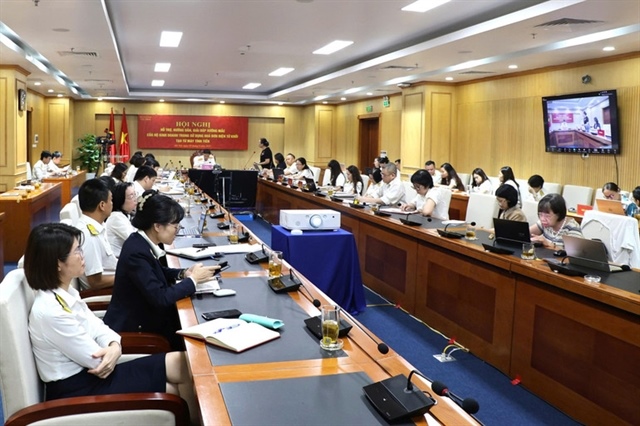
At the event delegates were told that tax authorities will improve policies and management to be more transparent, specific and appropriate, helping business households fulfil their tax obligations fully, quickly and conveniently. — Photo courtesy of the General Department of Taxation |
Starting June 1, business households with large annual revenues have been required to transition from lump-sum tax payments to tax payments based on actual revenue. This shift marks a significant step in the Government's ongoing efforts to modernise tax management and ensure greater fairness and transparency in tax obligations.
Under the new regulation, business households earning over VNĐ1 billion per year in six specific sectors must issue e-invoices generated from cash registers connected to tax authorities. This replaces the existing lump-sum tax model, which is considered outdated and prone to inaccuracies.
Data from the General Statistics Office shows that, as of the end of 2024, there were 3.6 million business households under tax administration, contributing nearly VNĐ26 trillion to the State budget. However, as of early 2025, about two million of these still pay taxes under the lump-sum method, with an average monthly payment of just VNĐ700,000.
This method has been considered misaligned with actual business performance and has resulted in many cases where businesses with significantly different revenues pay similar tax amounts.
- 09:08 06/06/2025









